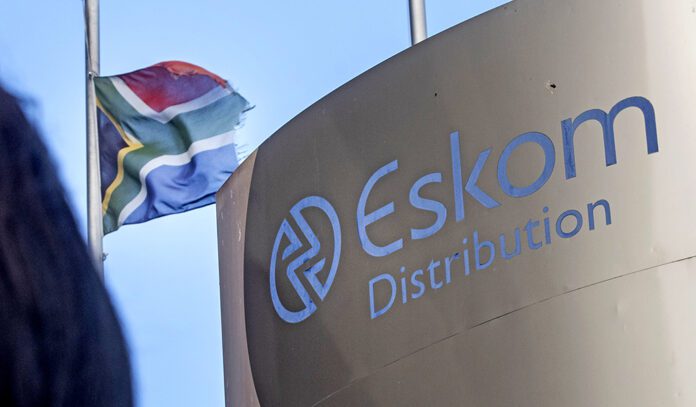Eskom Holdings was granted leave to defend itself against Bizz Tracers, a company owned by the forensic investigator, Calvin Rafadi, in a multi-million-rand agreement, which turned out to be unlawful.
Eskom claims the agreement between itself and Bizz Tracers was invalid, unlawful and tainted with acts of corruption.
Bizz Tracers, through its director, Rafadi, took Eskom to the Pretoria High Court in 2019 to force the power utility to pay him a sum of R57-million at the rate of 10.50% a year for what he claimed to be the money owed to his company for services rendered.
But in the recent court judgment, the judge, in summary, said as there was a dispute of facts, it was a trial court that had the jurisdiction to resolve the matter.
When contacted for comment after the judge’s verdict, Rafadi insisted that the power utility was indebted to him and had to pay his company.
“We did our work as Bizz Tracers for Eskom and we want our money, which is more than R9-million. If the judge wants this matter to go to trial, we are more than ready for that.”
According to the court document we saw, Bizz Tracers allegedly entered into a written agreement on or about October 19 2019 with the power utility “to track and recover ghost vending machines”.
The vending machines are used to procure illegal sales, including the purchasing of electricity at a lower price than regulated by Eskom and other power utilities.
The court documents suggest that Bizz Tracers tracked and recovered ghost vending machines used to defraud the state-owned company of sales of electricity revenue.
Initially, Eskom was allegedly going to pay commission of R57-million inclusive of value-added tax for every successful recovery of a machine. The date of the agreement was October 16 2015, expected to run until September 19 2018.
In his judgment of March 23, judge Cassim Sardiwalla said on or about August 3 2017, the applicant had recovered an Eskom machine, which Bizz Tracers had allegedly identified positively as the power utility’s vending machine through its serial number mentioned in court papers.
The documents state that Eskom failed to make a payment to Bizz Tracers for the successful recovery of the machine as per agreement.
The court document read: “An invoice for payment was issued and delivered by the applicant to the respondent on or about January 14 2019. On February 5 2019, the applicant sent an email to the respondent confirming the receipt of the invoice. On or about March 1 2019, a further letter of demand was sent requesting payment of the invoice.”
In summary, Sardiwalla said there was a dispute of facts relating to the plaintiff’s claim, which dispute could only be resolved in a trial court.
“There was and cannot be any justification in terms of Eskom’s procurement policy for the agreement being entered into … The services were acquired from a sole source, contrary to Eskom’s policy.
“The approval of the agreement by triple adjudication was invalid in that the triple adjudication applies to the approval of the commercial transactions not exceeding R5 000 000. The agreement contravenes the provisions of the Public Finance Management Act (PFMA) specifically section 45 and it constitutes financial misconduct in terms of section 83 of the PMFA. There is a prima facie proof of money laundering and/or corruption relating to the conclusion of the agreement,” reads the court document.
It is also stated in court documents that Eskom intended to issue a counter claim against Bizz Tracers for the recovery of all amounts paid to Rafadi’s company based on the results of the “invalid, unconstitutional and unlawful agreement”.
“It was never the intention of the parties that the applicant would be paid R50 000 000 on the recovery of all ghost machines. On the plaintiff’s own version, the respondent had previously paid an amount of R9 000 000 for the recovery of each ghost machine. Therefore, there is no basis upon which the applicant now claims R57 000 000 in respect of each machine.
“The four ghost vending machines were recovered by the applicant and [on] three occasions the applicant was paid consecutively amounts of R9 285 756 on December 20 2016, R9 756 653.53 on July 6 2017 and R9 120 000. Therefore, as can be previously seen, the applicant was only paid in the region of R9 000 000 per machine and the applicant can provide no basis for contending that this amount would now be R57 000 000 in respect of each machine.
“I am satisfied that the defences raised by the respondent to the application’s case are bona fide defences, which can be sustained by the respondent at the subsequent trial. I therefore make the following order.
“The respondent [Eskom] is granted leave to defend the action,” said Sardiwalla.
For more business news from Sunday World, click here.
Follow @SundayWorldZA on Twitter and @sundayworldza on Instagram, or like our Facebook Page, Sunday World, by clicking here for the latest breaking news in South Africa.



